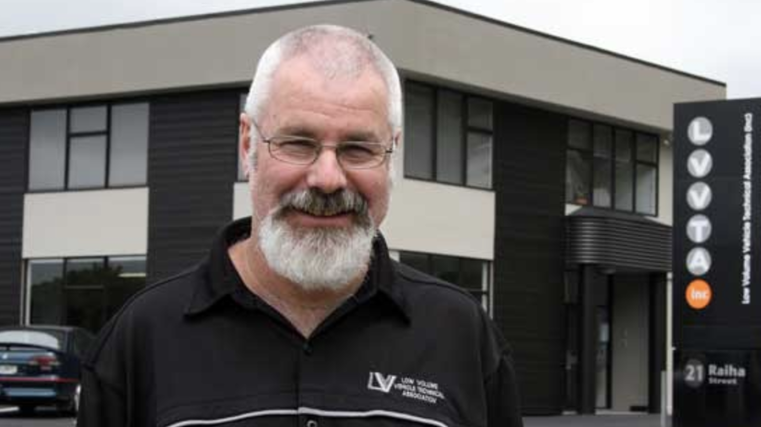Support helps cap certification fee increase

An automotive group is looking forward to no longer “running on the smell of an oily rag” after securing financial support from the NZTA.
The Low-Vehicle Volume Technical Association (LVVTA) was struggling with the rising costs to carry out its work and has welcomed news of funding from the government agency.
It also means fees for low-volume vehicle (LVV) certification plates will only increase by $50.02 from February 1, 2021, rather than about $150 if NZTA hadn’t stepped in to help.
The certification plate fee was last increased in August 2018 when it rose from $142.60 plus GST to $165.10 plus GST.
Tony Johnson, chief executive of the LVVTA, says: “The NZTA is now making an annual contribution toward the LVVTA’s operating costs in order to reduce the amount by which the certification plate fee would have otherwise had to be increased.
“Whereas the certification plate fee could have increased by over $150 as a result of the review of LVVTA’s operating costs, the increase has been kept down to $50 as a result of their contribution.
“An additional $50 per certification is a small price to pay for a sustainable system where New Zealanders can confidently continue to build and modify cars into the future.”
Johnson, pictured, says one of the biggest challenges for the LVVTA over the past three decades has been taking on extra work but without more resources.
“The government, the LVV certifiers, and the LVV certification system users all have greater needs and expectations of the LVVTA, so the LVVTA’s obligations and responsibilities sits on a constant slightly-upward trajectory, while the income line – based entirely on a fee applied to each LVV certification – stays static,” he explains.
“That regulated LVV certification plate fee has always been LVVTA’s only major income source, and so increasing this fee has been the only way to keep up.”
It has been working with the NZTA over the past year to identify what the LVVTA needed to operate in a better resourced and sustainable manner, rather than “running on the smell of an oily rag”.
A significant increase in income emerged as a key factor for the group to continue looking after the LVV certification system, supporting LVV certifiers, and providing services within the LVV space on behalf of the NZTA.
Kane Patena, NZTA’s general manager regulatory services, says: “We’re pleased to have supported LVVTA this year with some additional funding as they’ve developed a more sustainable funding model.
“This support, along with the increase in plate fees, will contribute to their continued good work in the vehicle certification sector.”
February’s certification plate fee increase will coincide with the introduction of the new electronic “Data Plate” system that is replacing the traditional engraved aluminium certification plate.
The online NZ Car Construction Manual will also become free of charge, with hopes this will reduce impediments to the public from understanding the technical requirements for modifying or building a car.
Another benefit coming to the modified-vehicle sector in February is upper seatbelt anchorage declarations for older vehicles that can’t be retro-fitted with such devices will become absorbed into the normal LVV certification process.





